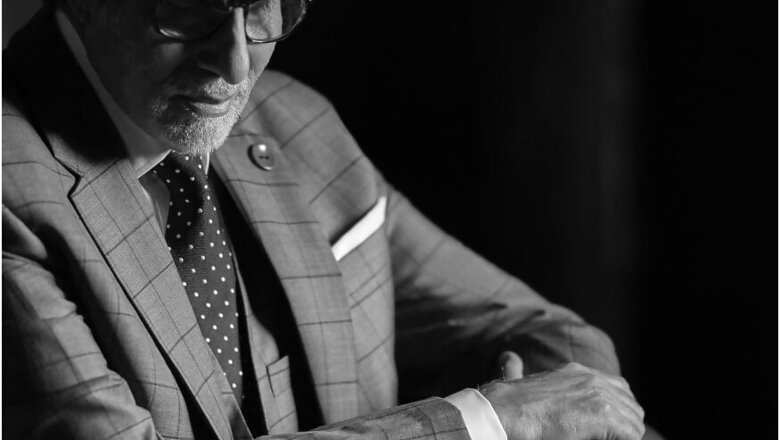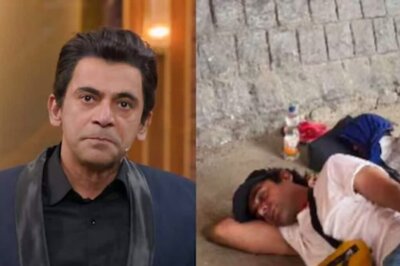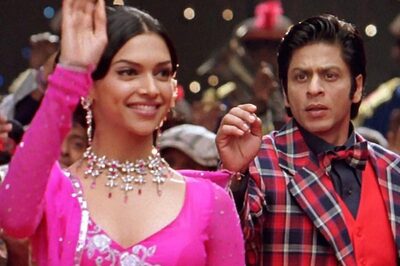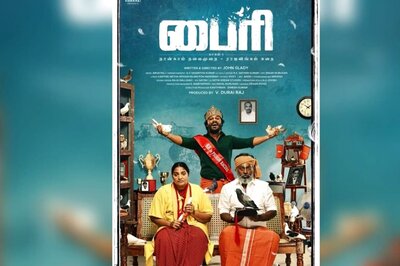
views
Amitabh Bachchan turns 77 today, but this is also the 50th year of his journey from Kolkata, then Calcutta to Bombay, now Mumbai, a journey which an upper middle class person with a corporate job of a fair salary and good prospects gave up to face struggle and uncertainty in the mayhem of the movie business.
Ashok Kumar, Dilip Kumar, Dev Anand and so many others before Amitabh had migrated into the movie world from respectable middle class professions and in case of Dilip Kumar, trade. The Indian middle class is one which is born of modernity undoubtedly ushered in by the encounter with Western colonialism and the cinema became the greatest cultural product through which this modernity has been weighed and judged. Film stars are entities through which the modern individual drawing from the middle class is made to morally judge her changing times, adapt to it through a set of new morals. Amitabh, the filmic image was a part of this convention.
Amitabh’s era of the 1970’s and 1980’s was perhaps a moment when the shock of a tradition meeting modernity was more or less over and the moments of social consolidation assumed the shape of politics of strife. The strikes of workers, teachers, lawyers, students and the agitations across the political space were instances of a social competition between an entrenched middle class and a wannabe class which wanted to climb up.
Read: Happy Birthday Amitabh Bachchan: Some Social Causes That He Supports
Somehow, Amitabh starrers captured the ambitions of the upwardly mobile population. Thus, from a moral agent who weighed her moral choices between traditional values and modern ones, the hero portrayed by Amitabh Bachchan was concerned between private values and public conduct. Slammed as an antihero, Amitabh played roles where the protagonist often compromised on private conduct in order to work on the anomalies of public institutions. Thus the cinema moved from a social affair to a political critique.
Often condemned as a fascist by scholars, Amitabh’s image as a hero can be seen in both ways, a fascist as well as one who represents the ultimately free human. The sense of freedom of the hero emanates from his understanding of the constitutiveness of the world, by which the existence of every entity is dependent upon the ecology which s/he inhabits. Vijay would not have been a smuggler, were his father not victimised so, his father would not have been victimised had he not been such an idealist and so on.
The ability of the hero to see how the world is tied together in a set of dependences and contingent factors perhaps becomes a source of a deep understanding of reality. The sense of truth is the hero’s freedom. The fully free is the one who is wholly aware of the truth. But Amitabh’s image is also fascist because he must always divide the world into a me and the rest, a mind that is forever divided into a battle of winning and losing, of obstacles and overcoming them, the need to have an enemy to defeat and if there is none, the need to find black cats in the dark. Also the intrepid attack of all things held sacred and respectable seemed to vindicate an essentially fascist mindset.
Yet, Amitabh’s superstardom is not in the lofty ideals mouthed through elated dialogues; it lies in what the cinema is ultimately valued for, its movement. The hero’s movements are supported by sharply contrasted spaces, palaces and pavements, familiar corners and strange venues, he meets the hapless and the lethal, and he may sit in deep meditative silences in confined spaces, but can drive speeding cars.
Read: Happy Birthday Amitabh Bachchan: 5 Looks That Prove His Fashion is Timeless
These contrasts of spaces give the hero contrasts of states of existence; we can see him incarcerated in chains and yet unbound in action, in a drunken revelry and ascetic restraint, as a winning hero as well as a sadist villain. In the minds of the viewers, these sharp movements on screen produce the effect of holistic experience and expend mental faculties. This makes the viewer think that Amitabh is an exhaustive entity, there is none who can surpass him, none who can carry the viewer to an experience which is as comprehensive as the ones experienced through the films he acted in.
(Dr Susmita Dasgupta has done research on Amitabh Bachchan.)




















Comments
0 comment